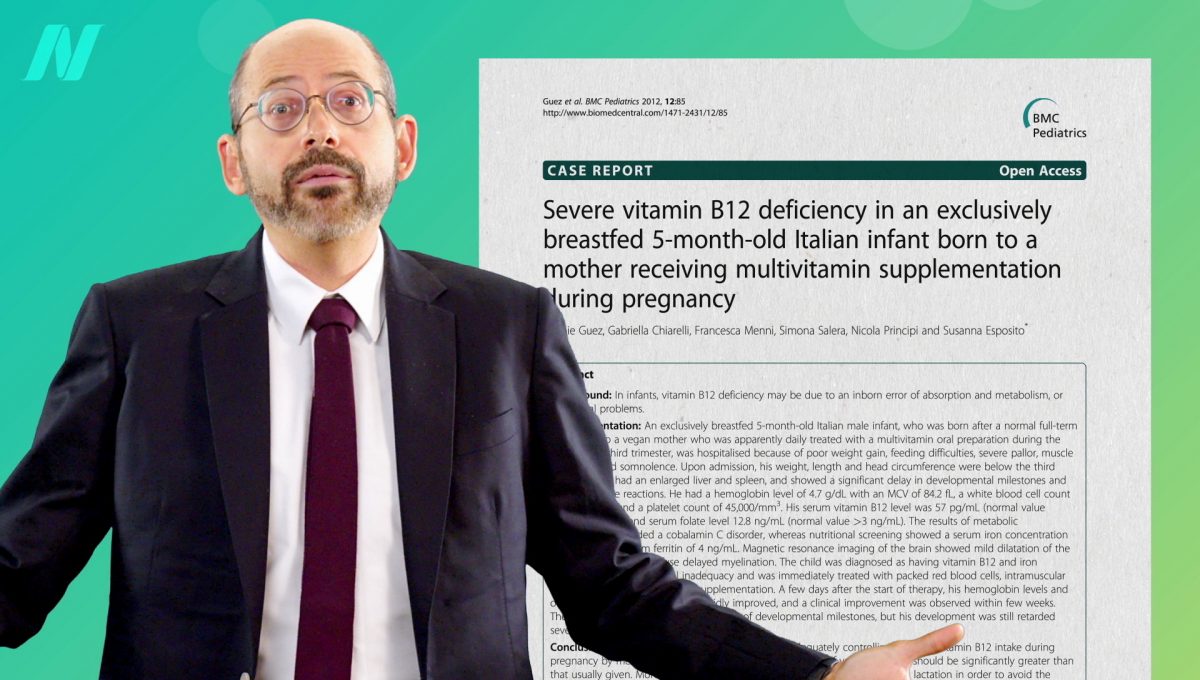
Vitamin B12
The results of vitamin B12 deficiency can be devastating. Learn more in our easy-to-understand videos on the latest research.
Vitamin B12 is not made by plants or animals but by microbes that blanket the earth. In today’s sanitized, modern world, the water supply is commonly chlorinated to kill off any bacteria. So, while we don’t get much B12 in the water anymore, we don’t get much cholera, either, which is a good thing!
A regular, reliable source of vitamin B12 is critical for anyone eating a plant-based diet. Though deficiency for those starting out with adequate stores may take years to develop, the results of B12 deficiency can be devastating, with cases reported of paralysis, psychosis, blindness, and even death. Newborn infants of mothers who eat a plant-based diet and who fail to supplement may develop deficiency much more rapidly with disastrous results. Getting enough vitamin B12 is absolutely nonnegotiable for those centering their diets around plant-based foods.
For adults under age 65, the easiest way to get B12 is to take at least one 2,000 mcg supplement each week or a daily dose of 50 mcg. Note that these doses are specific to cyanocobalamin, the preferred supplemental form of vitamin B12, as there is insufficient evidence to support the efficacy of the other forms, like methylcobalamin.
As we age, our ability to absorb vitamin B12 may decline. For those over 65, the supplementation should probably be increased up to 1,000 mcg of cyanocobalamin each day.
Instead of taking B12 supplements, it is possible to get sufficient amounts from B12-fortified foods, but we would have to eat three servings a day of foods each providing at least 85 percent of the Daily Value (on the Nutrition Facts label), with each serving eaten at least four to six hours after the last (the target is 2 mcg three times a day). For B12-fortified nutritional yeast, for example, two teaspoons three times a day may suffice. For most of us, though, it would probably be cheaper and more convenient to just take a supplement. Our fellow great apes get all the B12 they need eating bugs, dirt, and feces, but I’d suggest supplements instead!
Check out our infographic on updated B12 recommendations.
For substantiation of any statements of fact from the peer-reviewed medical literature, please see the associated videos below.
Popular Videos for Vitamin B12

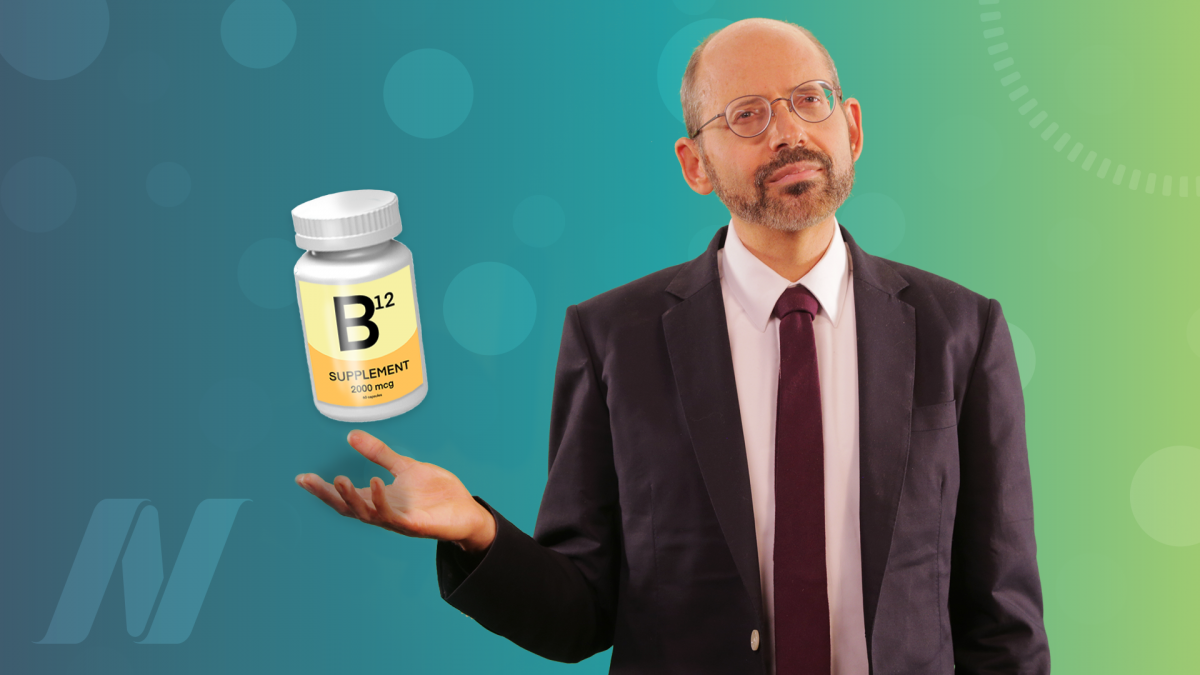
The Optimal Vitamin B12 Dosage for Adults
Why the current Recommended Daily Allowance for vitamin B12 may be insufficient.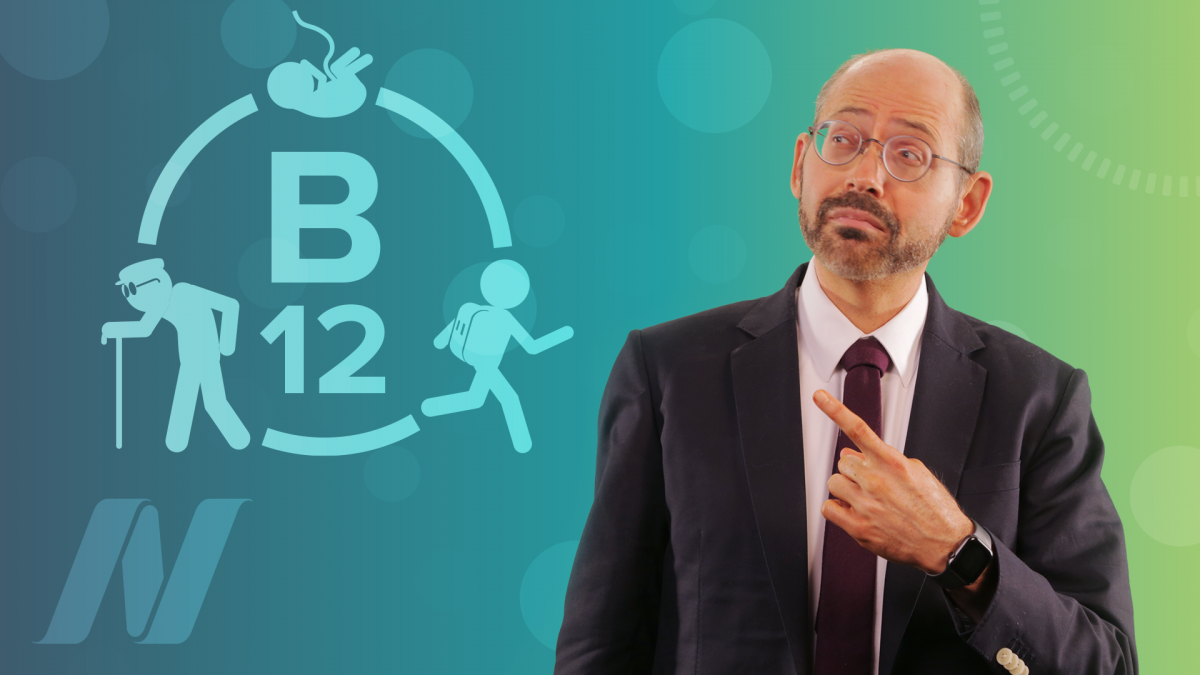
The Optimal Vitamin B12 Dosage for Kids, Pregnancy, and Seniors
At age 50, everyone, regardless of diet should start supplementing with B12-fortified foods or supplements...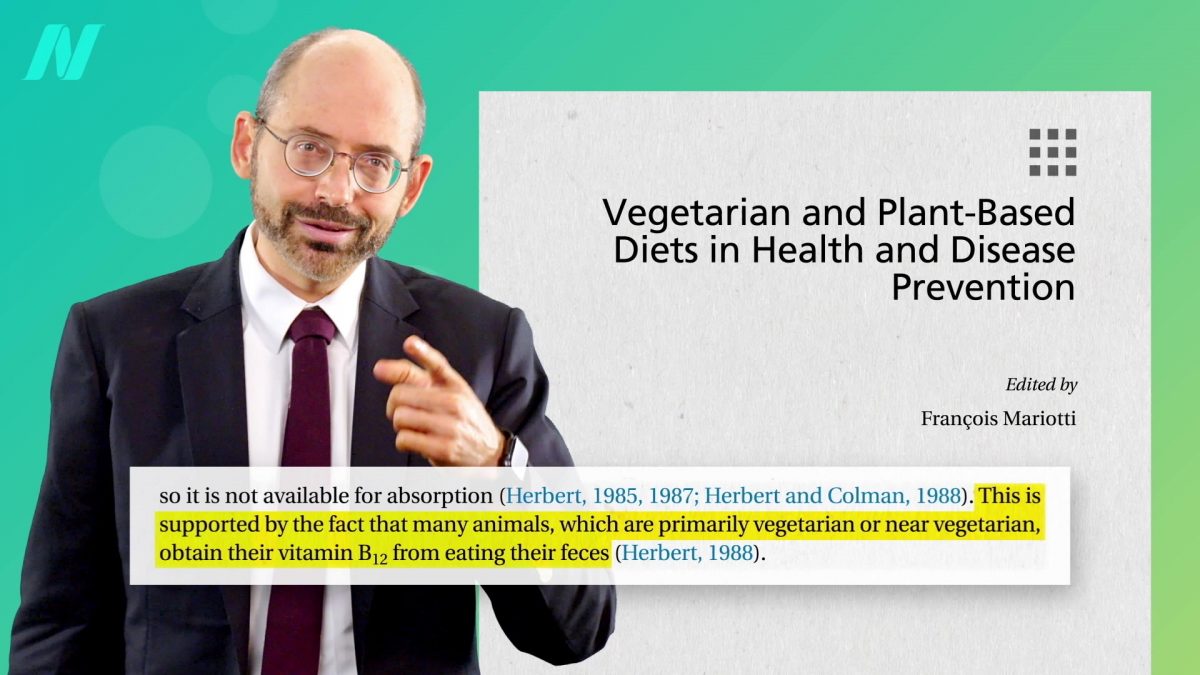
The Symptoms of Vitamin B12 Deficiency
B12 deficiency is known as “The Great Masquerader.”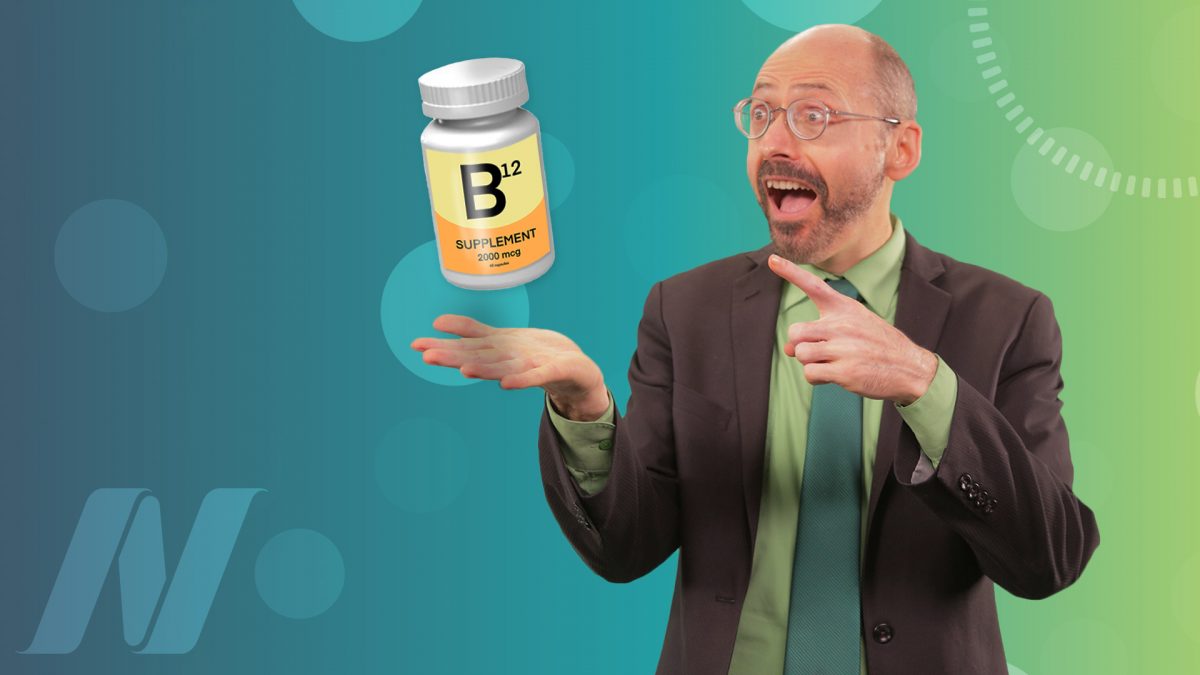
Vegetarians and Stroke Risk Factors—Vitamin B12 and Homocysteine?
Not taking B12 supplements or regularly eating B12 fortified foods may explain the higher stroke...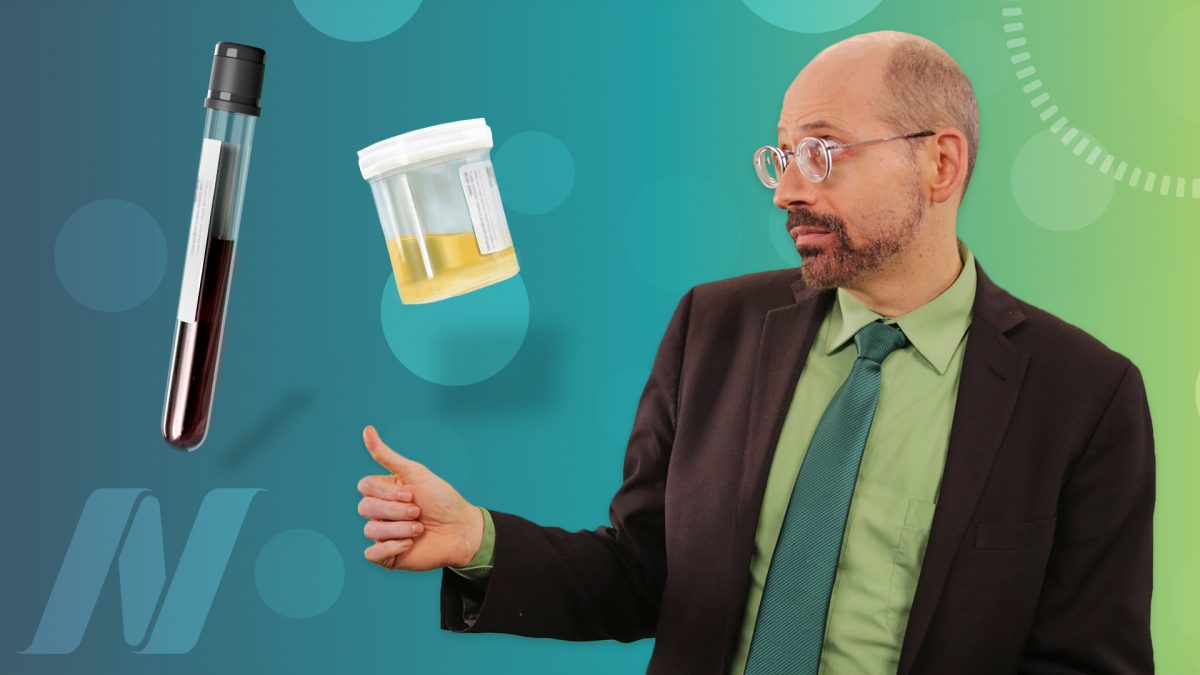
How to Test for Functional Vitamin B12 Deficiency
Many doctors mistakenly rely on serum B12 levels in the blood to test for vitamin...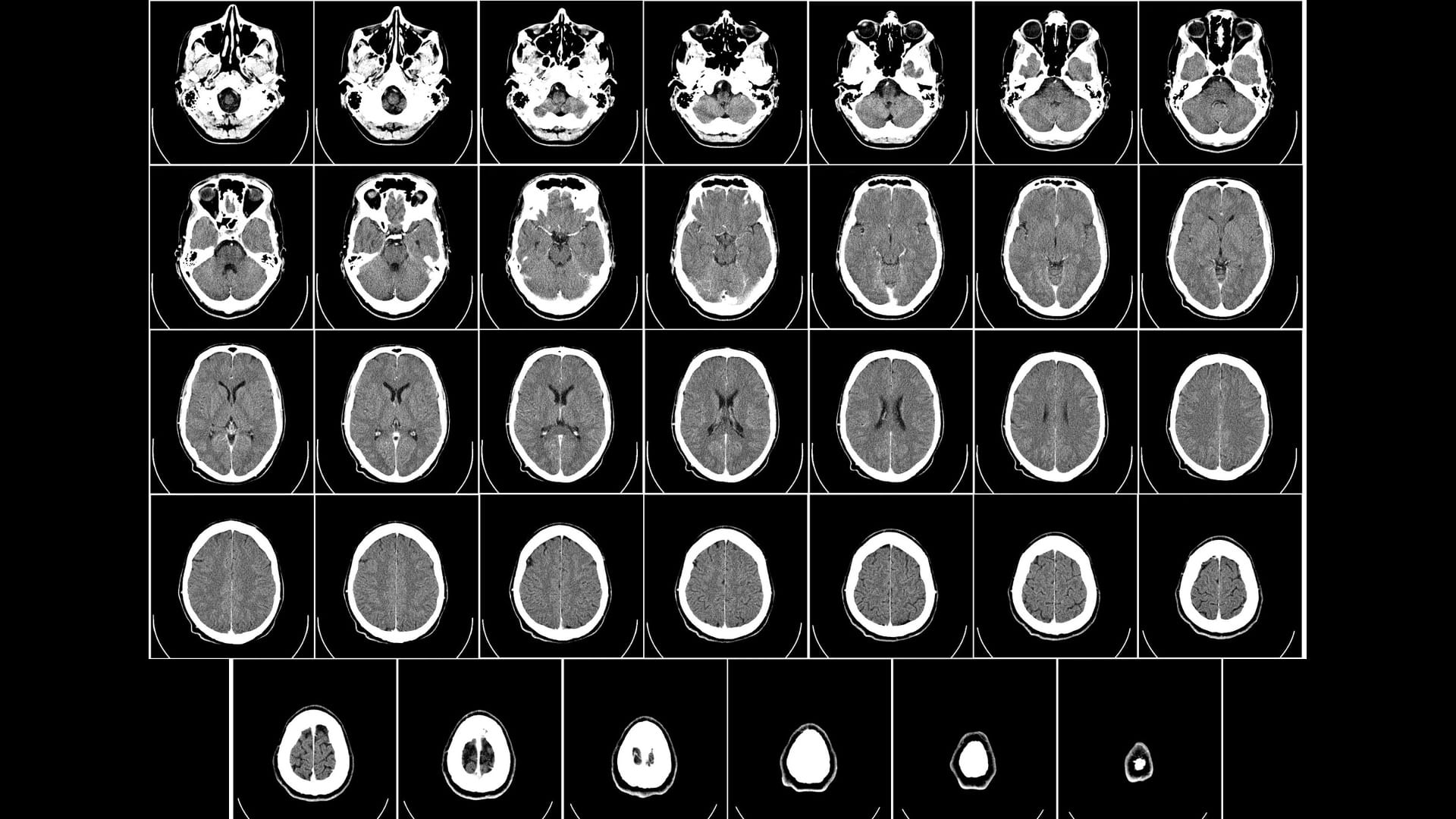
Preventing Brain Loss with B Vitamins?
One week on a plant-based diet can significantly drop blood levels of homocysteine, a toxin...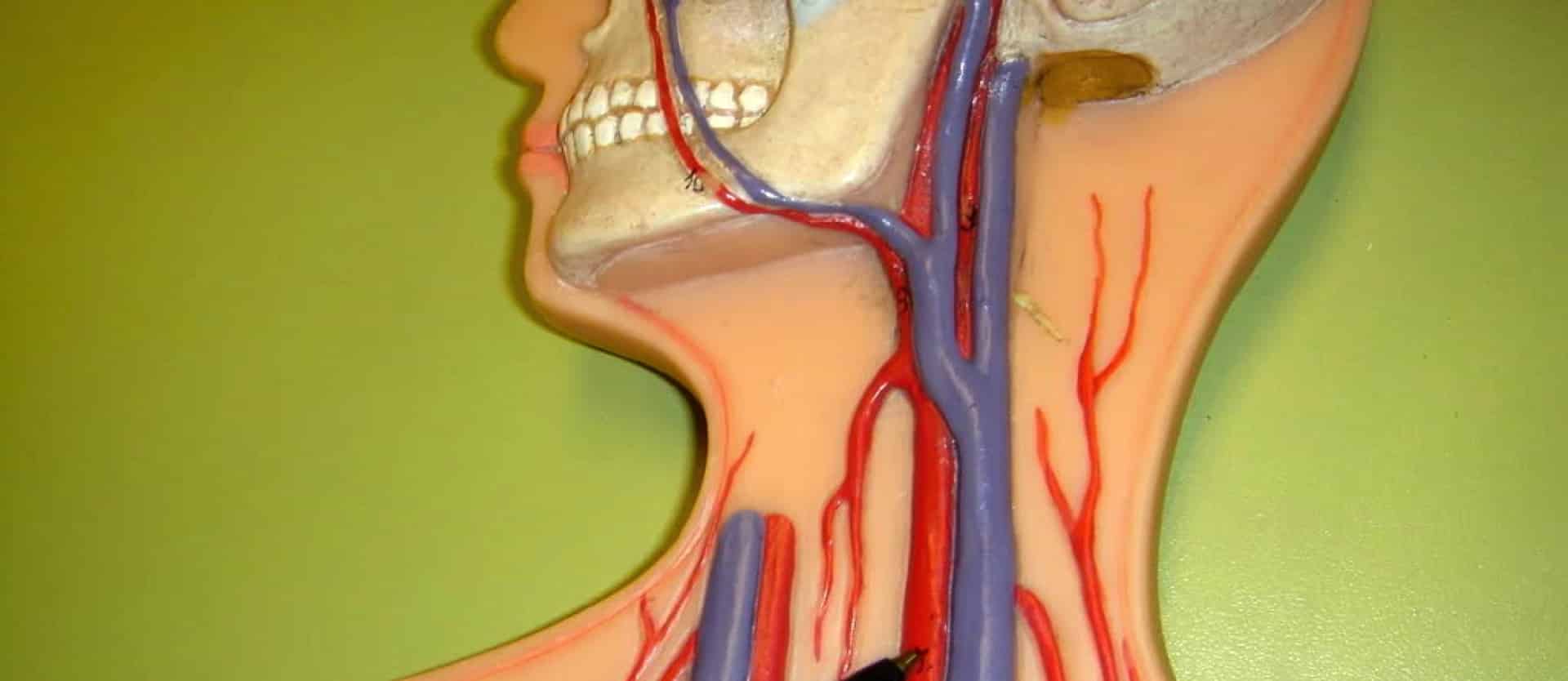
Vitamin B12 Necessary for Arterial Health
The cardiovascular benefits of plant-based diets may be severely undermined by vitamin B12 deficiency.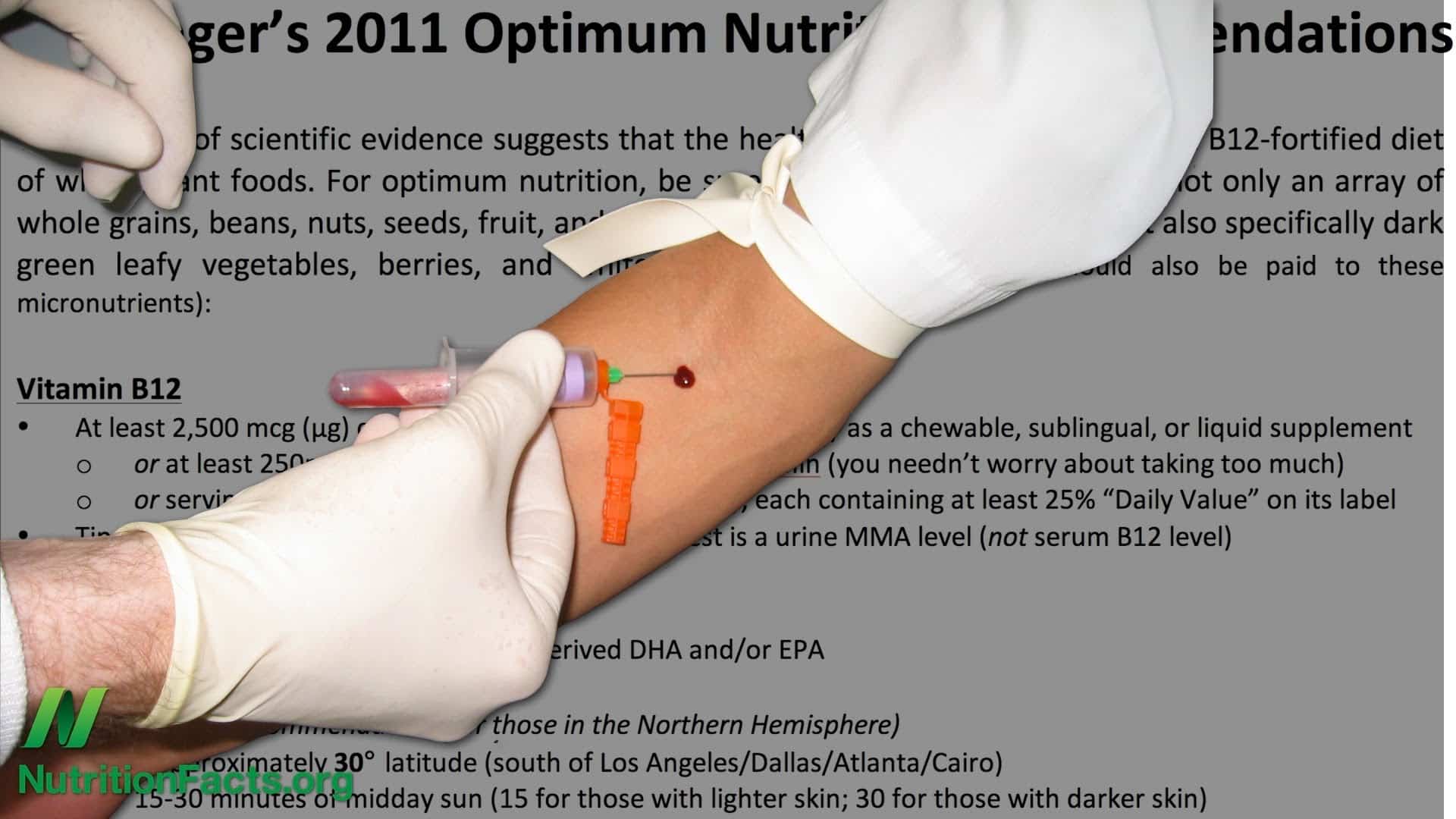
New Vitamin B12 Test
Who should get tested for vitamin B12 (cobalamin) deficiency, and which is the best test...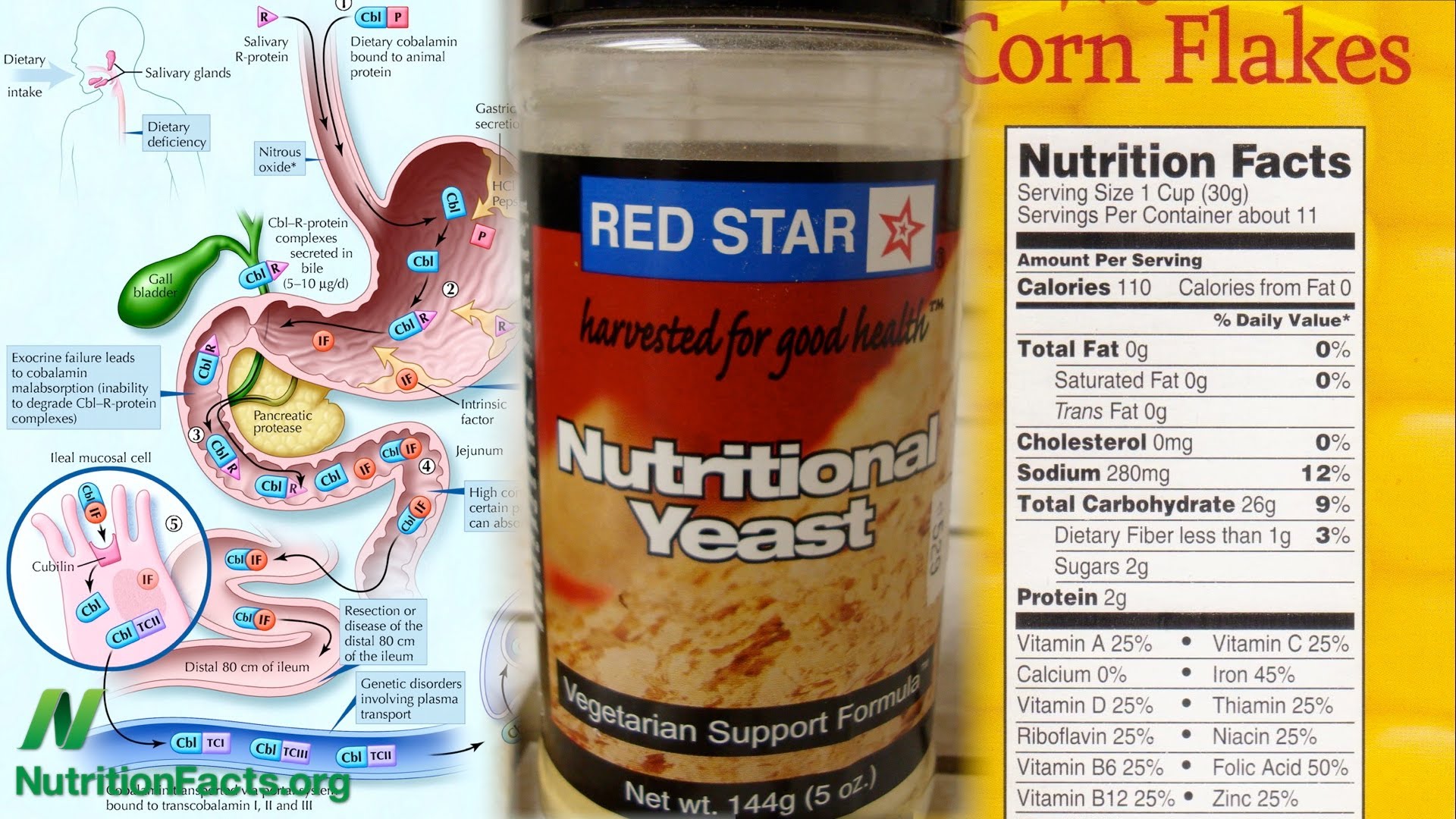
Daily Source of Vitamin B12
Fortified foods, such as some breakfast cereals and types of nutritional yeast, can provide another...All Videos for Vitamin B12
-

Pros and Cons of Raw Food Diets
Is there an advantage to eating a raw plant-based diet over a diet of raw and cooked whole plant foods?
-

Reversible Causes of Prematurely Graying Hair
Vitamin B12 deficiency is one of the rare, reversible causes of hair graying through some unknown mechanism.
-

The Benefits and Dangers of Chlorella
I explain why I no longer consume chlorella.
-

Side Effects of Metformin as a Life-Extension Drug
As a mild mitochondrial poison, metformin carries a variety of downsides.
-

How to Boost Collagen Synthesis with Diet
Which foods can increase collagen deposition and prevent wrinkles?
-

Update on Vegetarian Stroke Risk
Those eating more plant-based diets have lower risk of having a stroke, including both bleeding and clotting strokes.
-

Are Beer, Bananas, and B Vitamins Mosquito Repellents?
What happens when mosquitos put on beer goggles?
-

The Negative Effects and Benefits of Plant-Based Diets
What are the pros and cons of plant-based eating?
-

Plant-Based Pregnancy Outcomes and Breast Milk
The composition of breast milk is compared between vegetarian and nonvegetarian women.
-

Potential Vitamin and Mineral Deficiency Risks on a Vegan Diet
What is the best way to get the nutrients of concern on a plant-based diet?
-

Are Supplements and Vitamins B12 and D Really Necessary on a Plant-Based Diet?
I answer common questions about supplements, vitamin B12, and vitamin D. Do we need them?
-

Vitamin D May Explain Higher Bone Fracture Risk in Vegans
A combination of low calcium intake and low vitamin D exposure may explain higher bone fracture rates in British vegans.
-

Are Vegans at Risk for Iodine Deficiency?
Most plant-based milks are not fortified with iodine.
-

Do Vitamin B12 Supplements Cause Bone Fractures and Lung Cancer?
What do randomized controlled trials of high-dose daily vitamin B12 supplementation show about the effects on cancer risk, death, and longevity?
-

Do Vitamin B12 Supplements Cause Acne?
Acne can be triggered in one in ten people who get vitamin B12 injections.
-

The Best Type of Vitamin B12: Cyanocobalamin or Methylcobalamin?
For prevention and treatment of vitamin B12 deficiency, cyanocobalamin in chewable, sublingual, or liquid forms (rather than in a multivitamin) is best under most circumstances.
-

The Optimal Vitamin B12 Dosage for Kids, Pregnancy, and Seniors
At age 50, everyone, regardless of diet should start supplementing with B12-fortified foods or supplements but over age 65 only high-dose daily supplements may suffice.
-

The Healthiest Food Sources of Vitamin B12
What are the best green-light (whole food plant-based) sources of vitamin B12?
-

The Optimal Vitamin B12 Dosage for Adults
Why the current Recommended Daily Allowance for vitamin B12 may be insufficient.
-

The Symptoms of Vitamin B12 Deficiency
B12 deficiency is known as “The Great Masquerader.”
-

The Efficacy and Safety of Creatine for High Homocysteine
Those on a healthy plant-based diet with elevated homocysteine levels despite taking sufficient vitamin B12 may want to consider taking a gram a day of contaminant-free creatine.
-

Should Vegetarians Take Creatine to Normalize Homocysteine?
What are the consequences of having to make your own creatine rather than relying on dietary sources?
-

How to Test for Functional Vitamin B12 Deficiency
Many doctors mistakenly rely on serum B12 levels in the blood to test for vitamin B12 deficiency.
-

Vegetarians and Stroke Risk Factors—Vitamin B12 and Homocysteine?
Not taking B12 supplements or regularly eating B12 fortified foods may explain the higher stroke risk found among vegetarians.
-

How to Prevent Toxoplasmosis
The risk of contracting the brain parasite toxoplasma from kitty litter vs. meat.
-

Do Apricot Seeds Work as an Alternative Cancer Cure?
Do those who choose alternative cancer treatments live longer?
-

Benefits of a Macrobiotic Diet for Diabetes
What happens when you add massive amounts of carbs to the daily diet of type 2 diabetics in the form of whole grains?
-

Best Supplement for Canker Sores
Vitamin C, turmeric, beta-glucan fiber, and vitamin B12 are put to the test for recurring canker sores (aphthous ulcers).
-

Eczema Treatment with Coconut Oil, Mineral Oil vs. Vaseline
Natural topical remedies for eczema, including licorice root gel, St. John’s Wort cream, and emollients such as coconut oil, mineral oil, and petroleum jelly, are put to the test.
-

Best Foods to Reduce Stroke Risk
What are the protective components of dietary patterns and foods associated with lower risk of cerebrovascular disease, or stroke?
-

What’s the “Natural” Human Diet?
What can our nutrient requirements, metabolism, and physiology tell us about what we should be eating?
-

Can Morbid Obesity Be Reversed Through Diet?
How extreme was Dr. Kempner’s rice diet compared to traditional surgical approaches? Is there a safer alternative?
-

Preventing Brain Loss with B Vitamins?
One week on a plant-based diet can significantly drop blood levels of homocysteine, a toxin associated with cognitive decline and Alzheimer’s disease. Without vitamin B12 supplementation, though, a long-term plant-based diet could make things worse.
-

Vitamin B12 Necessary for Arterial Health
The cardiovascular benefits of plant-based diets may be severely undermined by vitamin B12 deficiency.
-

Nutrient-Dense Approach to Weight Management
Americans eating meat-free diets average higher intakes of nearly every nutrient, while maintaining a lower body weight—perhaps due, in part, to their higher resting metabolic rates.
-

Artificial Food Colors and ADHD
In response to definitive evidence showing artificial colors may increase inattentiveness, impulsivity, and hyperactivity among young children, a call has been made by consumer groups to ban food dyes.
-

Good Grub: The Healthiest Meat
Of all animals, the bodies of insects may have the lowest saturated fat content.
-

Not So Delusional Parasitosis
Delusional parasitosis is a form of psychosis characterized by the false belief that one is infested with some sort of parasite. It can be triggered by a variety of brain diseases, including parasites themselves.
-

New Vitamin B12 Test
Who should get tested for vitamin B12 (cobalamin) deficiency, and which is the best test to use: serum B12, methylmalonic acid (MMA), or holotranscobalamin levels?
-

Daily Source of Vitamin B12
Fortified foods, such as some breakfast cereals and types of nutritional yeast, can provide another cholesterol-free source of vitamin B12.
